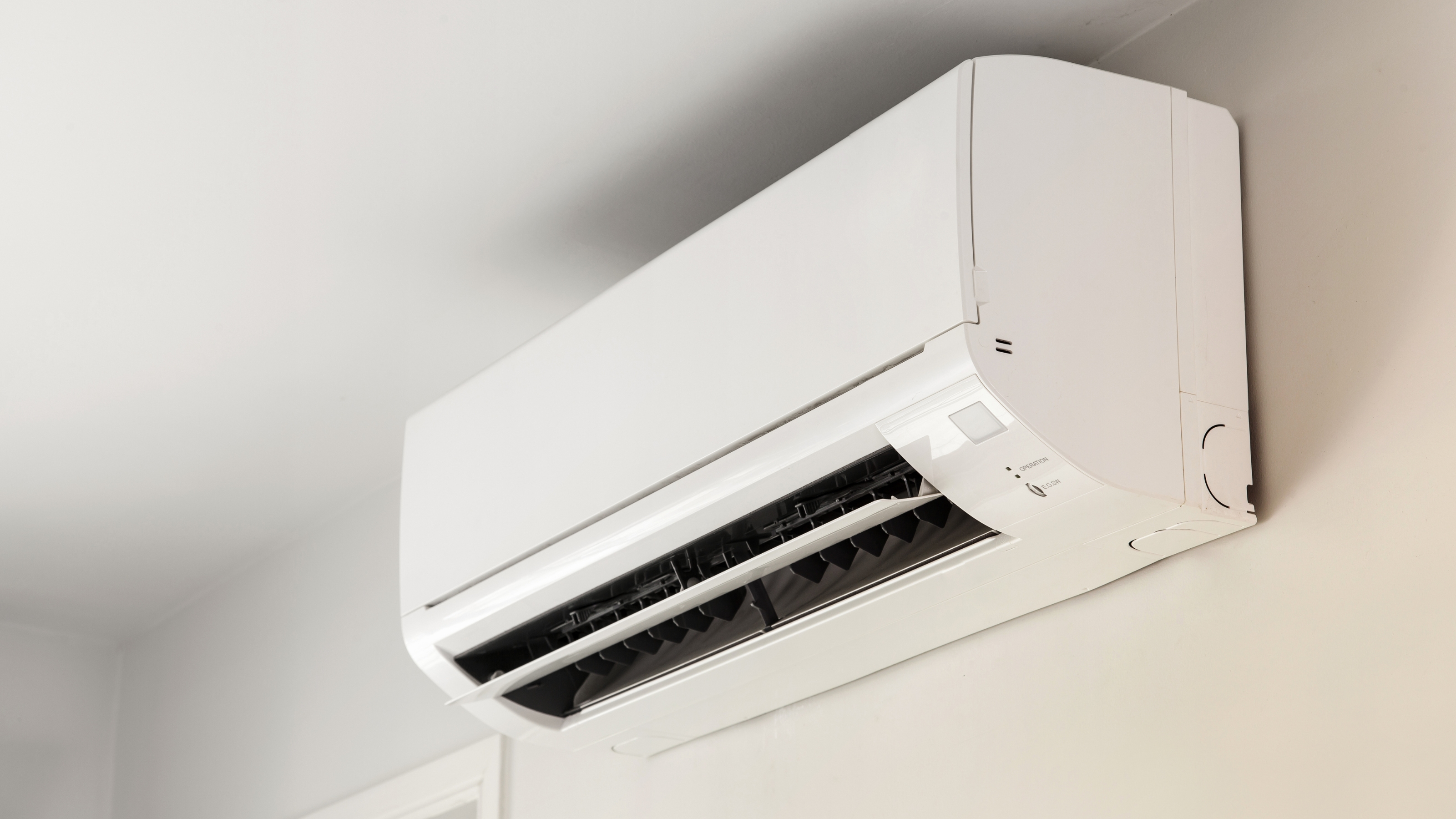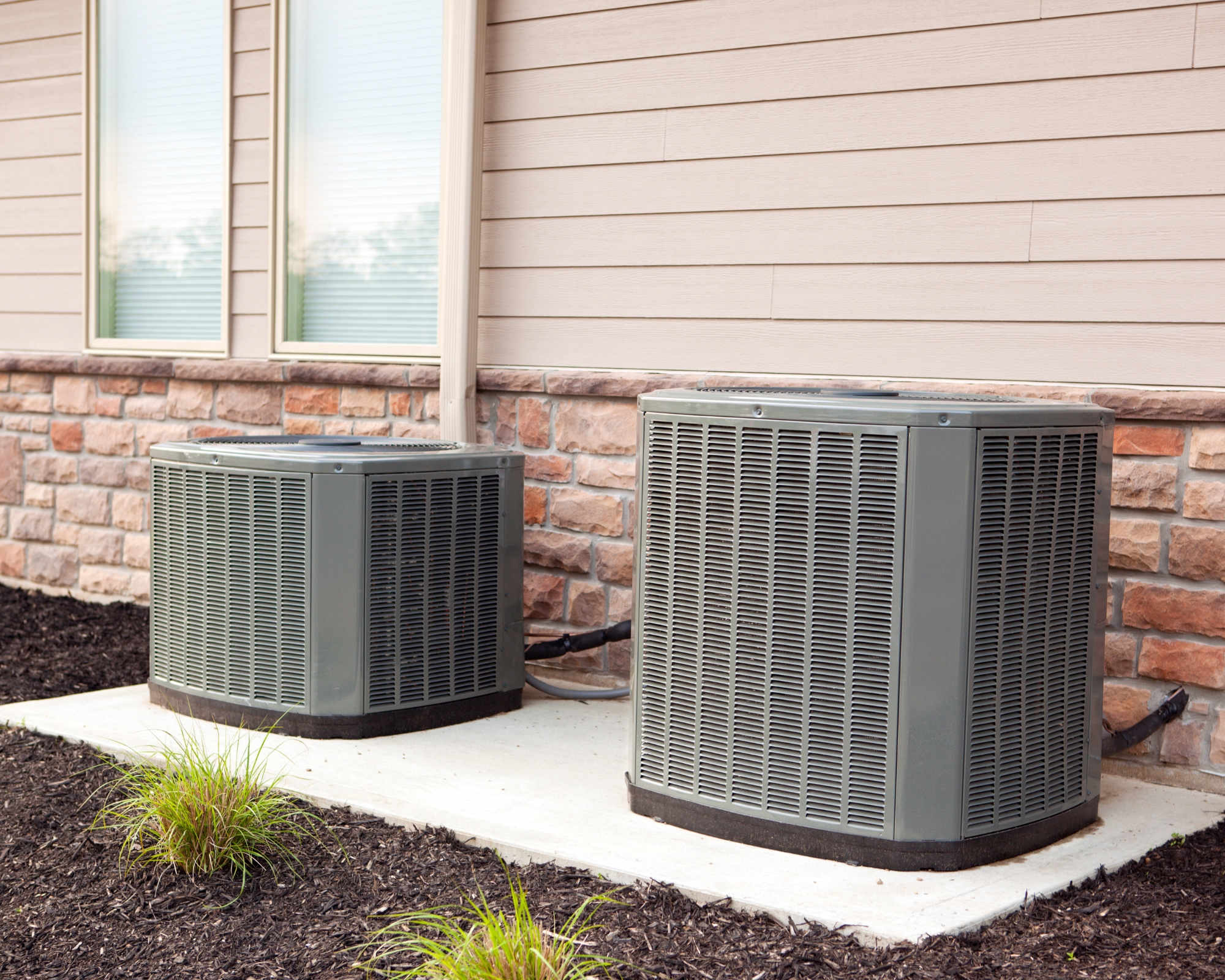
In those scorching summer months, there's no greater relief than a handy air conditioning unit. While your AC may be working overtime to keep you cool, it may be building up potentially harmful dust and debris.
It's important to keep your air conditioner clean as it may be sucking in pollen and other airborne particles. It may be a bit worrisome to tackle as you don't want to damage anything but don't stress.
We asked professional cleaners and technical experts for their advice. You can rest assured your unit won't harm the air quality while cooling down a room.
The best way to clean an air conditioner unit
After investing in a cooling system, like this portable air conditioner going viral on TikTok, you'll want to make sure you're keeping it in top-notch shape so you feel the full effect. Not cleaning an AC unit can not only damage the efficiency of the machine but can harm your overall air quality.
"Air conditioners accumulate dirt and debris through their normal operation. Dust, pollen, and other airborne particles are drawn into the unit, and over time, these contaminants can build up on the filters, coils, and fins. Outdoor units are particularly susceptible to dirt from the surrounding environment, including leaves, grass, and insects," says Muffetta Krueger, founder of Muffetta Domestic Assistants.
Read on to discover how to clean an AC unit effectively so you can improve the air quality of your home and stay cool and comfortable.

1. Turn the power off
It may seem like an obvious step but double-check you've turned the power off on your portable air conditioner, window unit, or built-in system.
"Always turn off the unit and disconnect it from the power supply before cleaning to avoid any accidents," says Vanessa Terra Bossart, owner of Green Terra Cleaning.
2. Clean or replace the air filter
Now it's time to get to work banishing all those nasty contaminants. Start by cleaning the AC filter or replacing it entirely if it's time for a new one.
Use a vacuum to suck out all the loose dust and debris clinging to the filter (a handheld vacuum like the Black & Decker Dustbuster, available on Amazon, works well for this). Then clean the filter with a soft microfiber sponge and soapy water. These non-scratch Scrub-it sponges and classic Dawn dish soap, both available on Amazon, are a fantastic combination.
"Check the air filter and either clean it if reusable or replace it if it's a disposable type. This should be done every 1-3 months, depending on usage and environmental factors," says Vanessa.
Check how often you should replace your air filter if you're not sure about yours.
3. Clean the coils and fins
Now it's time for the details within the machine. Get into the inner workings of the unit to wipe down the coils and fins.
If you have an indoor AC unit, "Remove the access panel to expose the evaporator coils. Use a soft brush to gently remove dust. Spray a coil cleaner, following the product instructions, and let it sit for the recommended time before rinsing," says Muffetta.
For an outdoor unit, Muffetta recommends, "Remove the protective grilles to access the condenser coils. Use a vacuum with a soft brush attachment to remove loose debris. Spray the coils with a coil cleaner and rinse thoroughly with a garden hose."
Finally, "Use a fin comb to straighten any bent fins and remove dirt. Be gentle to avoid damaging the delicate metal," says Muffetta.
4. Check the drain line
Next, it's time to get rid of any mold that may be lurking within your machine. Mold growth can affect your air quality and over health so important to banish it quickly.
"Check the AC drain line for clogs and flush it with bleach and water to prevent mold and algae buildup," says Josh Mitchell, HVAC technician and the owner of airconditionerlab.com.
5. Clean the external unit
Time to finish everything off and clean up the outside so your machine looks as good as it functions. Use some of the best cleaning supplies to wipe off any dirt or gunk from the outside.
"Remove debris from around the unit and gently hose off dirt from the fins, being careful not to damage the fins or coils," says Josh.
FAQs
How often should I clean an AC unit?
While you should clean your AC unit annually, you may need to clean it more often depending on your living conditions.
"It's generally recommended to clean your air conditioning unit at least once a year. However, if you live in an area with high levels of dust, pollution, or pollen, you might need to clean it more frequently. Regular maintenance helps maintain efficiency and prolong the unit's lifespan," says Vanessa.
What happens if I don't clean my AC unit?
A dirty AC unit will not only be less effective, it can negatively affect your air quality.
"Dirt and debris can reduce airflow and insulate the coil, reducing its ability to absorb heat. This inefficiency can increase cooling costs by up to 15-30%. Dirty AC units work harder to cool your home over time, which can lead to premature breakdowns and costly repairs. Unclean air conditioners can harbor mold and bacteria, leading to poor indoor air quality and respiratory issues," says Josh.
Improper maintenance of your unit may affect how long it takes for an AC unit to cool down a room. But if you're a little unsure about tackling your machine without damaging it, it's best to consult a professional.
"Remember, while regular cleaning can be done on your own, certain tasks like checking refrigerant levels or electrical components should be left to professionals. If you suspect a major issue, it's best to consult a qualified HVAC technician," says Josh.
Join our newsletter
Get small space home decor ideas, celeb inspiration, DIY tips and more, straight to your inbox!
Real Homes is the homes website for people with real lives, real budgets and real problems. Everyone deserves to love where they live and Real Homes is the ultimate homeware authority that makes this possible by covering realistic and achievable ways to make your home better. Expect easy DIYs, advice on costing and loads of interiors inspiration. Whether it is our first hand experiences, or finding an expert with the best know-how, everyone can find a project to suit their needs on Real Homes.